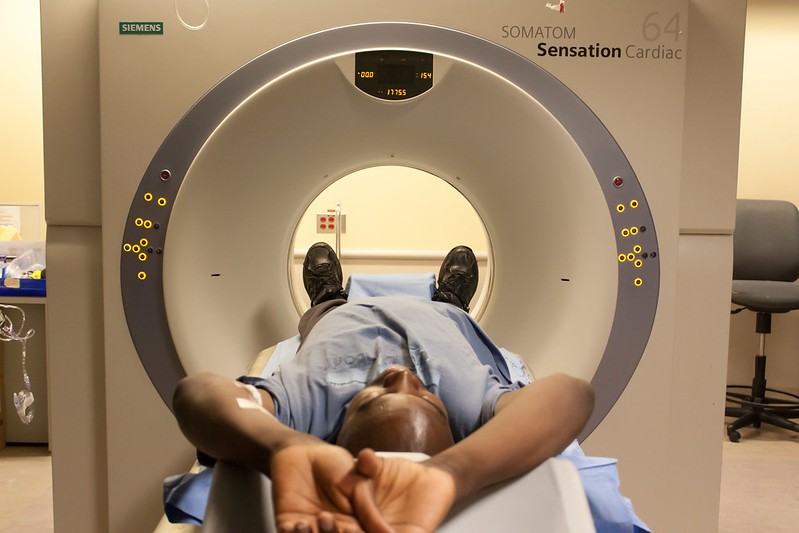RESEARCH: AI speeds up COVID-19 diagnoses without the burden of radiation
In hospitals, doctors often don’t have the time to wait days for a COVID-19 diagnosis; they need it stat.
Chest computed tomography (CT) can assist with diagnoses, but a standard dose CT scan can expose patients to significant amounts of radiation, especially those in need of multiple scans.
In a study published in Nature's Scientific Reports, Arash Mohammadi and Farnoosh Naderkhani led their graduate students, Parnian Afshar, Nastaran Enshaei and Shahin Heidarian from the Concordia Institute for Information Systems Engineering at the Gina Cody School of Engineering and Computer Science to develop an Artificial Intelligence (AI)-based framework that achieves human-level diagnosis with low-dose and ultra-low-dose scan protocols that reduce radiation exposure, close to that of a single X-ray.
They worked in collaboration with colleagues from Sunnybrook Health Sciences Centre, McGill University Health Center, Université de Montréal, University of Toronto and the National Cancer Institute (NCI).
The proposed AI model has the potential to assist radiologists in accurately and promptly diagnosing COVID-19 infections and helping control the transmission chain during the pandemic.
Read "Human-level COVID-19 diagnosis from low-dose CT scans using a two-stage time-distributed capsule network" in Nature’s Scientific Reports.

